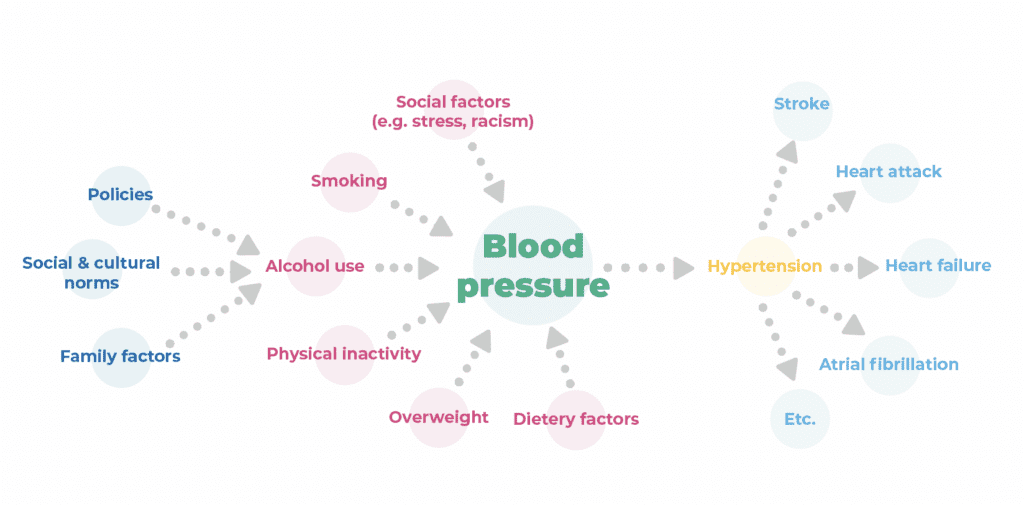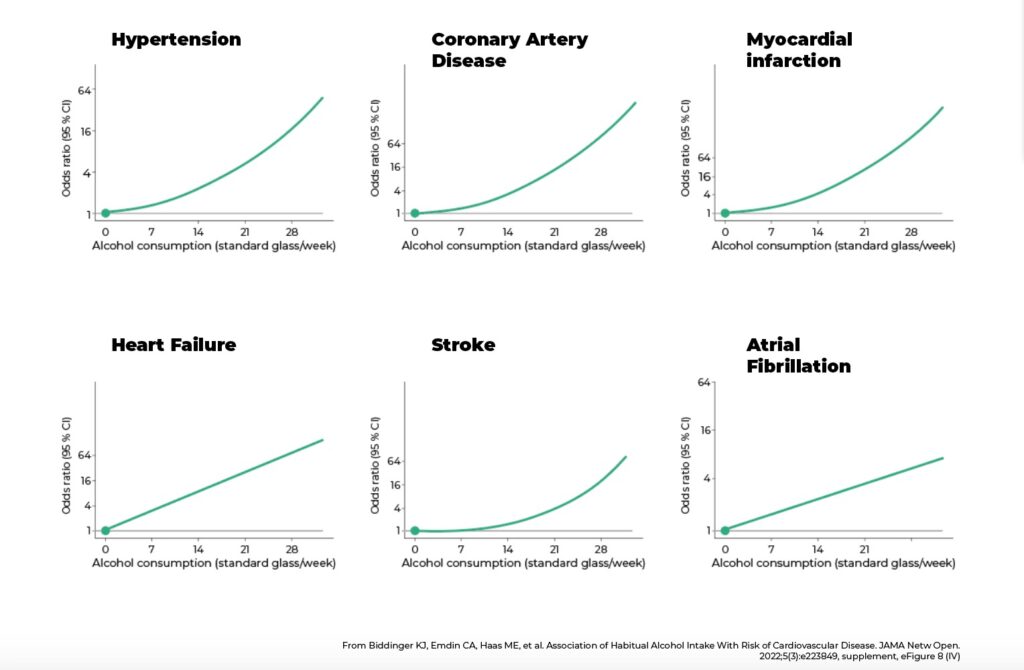Alcohol Issues Newsletter March 13 – 18, 2023
Alcohol Issues Top Stories
- Even Small Amounts of Alcohol Can Be Harmful to Blood Pressure and the Heart.
- New Report: Alcohol and Blood Pressure.
- Carlsberg Exposed: Beer Giant Participates in Oppression of Uyghurs.
Most Read Stories
- Panama Plans to Raise Alcohol Taxes for the Benefit of Cancer Prevention and Research.
- UK: Government Increases Alcohol Duty, Civil Society Welcomes Decision.
- Hepatitis Caused by Alcohol Skyrocketed 50% in Spain During COVID-19.
Most Read Stories
Alcohol Issues Special Feature – No. 11
Alcohol and Heart Disease
What we know about alcohol’s role in multiple heart conditions and risk factors for negative cardiovascular outcomes
Movendi International has published more than 40 resources about the link between alcohol and heart disease, since 2015.
The evidence is growing stronger and stronger, showing that any amount of alcohol use is bad for cardiovascular health. Even low dose alcohol increases health risks such as for the heart, compared to not having alcohol at all.
The World Heart Federation (WHF) published a policy brief in early 2022 that showed the strong evidence base that no amount of alcohol is good for the heart. And in early 2023, a new report explored world class science about alcohol, blood pressure, hypertension, and alcohol’s role in multiple heart diseases.
This Special Feature on Alcohol and Heart Disease provides a state of the art overview of what we know about alcohol’s role in multiple heart conditions and alcohol as contributing cause to heart disease risk factors.
Alcohol use affects the cardiovascular system negatively in multiple ways.
Alcohol increases the risk of ischemic heart disease, ischaemic and haemorrhagic stroke, atrial fibrilation, and cardiomyopathy.
There is no safe or reduced risk level of alcohol use concerning risk of hypertension in the longer term and this risk begins to escalate with increased consumption from even a low or moderate level.
In early 2023 a study provided up-to-date and comprehensive estimates on the global alcohol cardiomyopathy (ACM) burden from 1990 to 2019. The absolute number of prevalent cases, DALYs cases and deaths due to alcohol cardiomyopathy significantly increased between 1990 and 2019. ACM remains an important global public health concern.
A 2022 study showed that the lower heart disease risk experienced by low dose alcohol users is likely attributable to other healthy lifestyle factors and not their alcohol use. The researchers did a Mendelian analysis and found that the risk of cardiovascular disease increases exponentially with the level of alcohol use. There is a rise in cardiovascular even at levels deemed “low risk” by national guidelines.
Big Alcohol manufactures doubt about alcohol and heart disease
Given the new and growing scientific evidence proving alcohol’s negative effects on cardiovascular health, it is important to find out what kind of influence the alcohol industry has on research indicating cardio-protective effects of alcohol.
A brand new research analysis of systematic reviews on cardiovascular disease and alcohol exposed that alcohol industry funding or history of funding skewed the results in favor of alcohol industry interests.
The alcohol industry funds social aspects and public relations organizations to mis-represent the evidence on cardiovascular effects of low dose (“moderate”) alcohol consumption.
The findings of the study expose that alcohol industry funding or history of funding skewed the results of reviews in favor of the alcohol industry.
The authors state that this analysis could have missed research where alcohol industry connections were deliberately hidden such as in the case with the tobacco industry. It could also have missed conflicts of interest which were beyond the declaration period i.e. three years. Therefore, an even higher proportion of reviews which show health protective effects of alcohol may have been affected by the alcohol industry, but not discovered in this analysis.
Studying broader cardiovascular outcomes – as alcohol industry connected research reviews have done – could bias the reviews. Prof. Jürgen Rehm has suggested that selecting broad outcomes render reviews meaningless.
Another recent study by Peake and colleagues published in the European Journal of Public Health found that alcohol industry funded health organizations mis-represent the evidence on cardiovascular effects of low dose (“moderate”) alcohol consumption.
This idea [that alcohol may be good for the heart] has been assiduously promoted by the alcohol industry for whom it looks clearly important to political strategies. This study demonstrates that there is a need not only to resolve the long running controversy, but also to pay attention to the actions of the alcohol industry in influencing the science,” conclude Su Golder and Jim McCambridge, the authors of the research analysis on alcohol, cardiovascular disease and industry funding, as per Science Direct.
Su Golder and Jim McCambridge, the authors of this research analysis
Mendelian Randomization Study challenges concept that low-dose alcohol is cardioprotective
The cardioprotective hypothesis for ‘moderate’ alcohol consumption is plagued by confounding, selection bias and increasingly implausible biological mechanisms, and the scientific pillars on which it is based are not holding up.
The findings of the Mendelian Randomization Study challenge the concept that low-dose alcohol is cardioprotective.
The upshot is that the research literature suggesting cardioprotection is largely based on studies of healthy survivors who have not died from other competing causes.
A 2021 study also showed that avoiding potential biases prevents underestimation of cardiovascular risk and indicates that consuming up to 14 units of alcohol per week is also associated with increased cardiovascular risk in the general population.
The Alcohol Issues Podcast – Season 3, Episode 1
A brand new report on alcohol and blood pressure summarizes the best scientific research and provides a state-of-the-art overview of alcohol’s substantial causal role in the genesis of hypertension and related diseases.
For the first episode of the third season Maik Dünnbier discusses the findings and conclusions from the brand new, groundbreaking report with one of the co-authors Dr. Timothy Naimi.
The Alcohol Issues Podcast is an original production by Movendi International. It’s a show about current alcohol issues of global importance. Through in-depth conversations with policy makers, community leaders and scientists, we explore alcohol policy issues, discuss landmark scientific studies, and expose the alcohol industry.
Upcoming Events Calendar 2023


